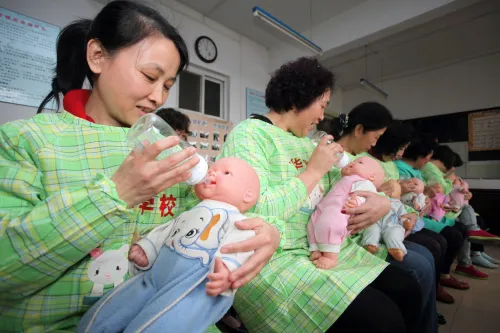What Mechanism Enables Infant-Parent Bonding in the Brain?

Synopsis
Key Takeaways
- Oxytocin is vital for infant emotional development.
- Mouse pups with active oxytocin systems cope better with parental separation.
- Research highlights early gender differences in emotional responses.
- Insights may aid understanding of conditions like autism.
- Findings emphasize the importance of nurturing in early life.
New Delhi, Sep 18 (NationPress) Research conducted by Israeli scientists has revealed that the protein oxytocin plays a vital role in how young brains react to parental separation, significantly influencing emotional development from a very young age.
Researchers at the Weizmann Institute of Science devised a noninvasive technique to deactivate specific brain cells in mouse pups, allowing them to maintain their natural behaviors, as reported by Xinhua news agency.
Employing this innovative technology, the team discovered how oxytocin activity in the brain affects the ability of pups to deal with separation from their mothers.
Commonly referred to as the “love hormone”, oxytocin is known for its role in fostering social connections. While prior studies primarily focused on adults, this groundbreaking research illustrates that oxytocin also influences the emotional behaviors of juvenile animals.
During brief separations from their mothers, mouse pups with an operational oxytocin system adjusted more readily and exhibited fewer distress signals. Conversely, pups with a deactivated oxytocin system did not adjust well, continuing to emit distress calls until they were reunited with their mothers.
Published in the journal Science, the study further revealed that oxytocin affects how pups behave post-reunion. Those with active oxytocin systems called out more frequently and displayed distinct vocal patterns indicating a desire for closeness, followed by a state of calm.
The research team also identified early behavioral differences between male and female pups.
Female pups showed greater susceptibility to variations in oxytocin activity, implying that emotional development may begin to differ between genders sooner than previously understood, according to the researchers.
This study enhances our understanding of how early life experiences and brain chemistry shape future emotional and social behaviors.
Moreover, it may provide insights for future investigations into conditions like autism, where these developmental processes might become disrupted.










